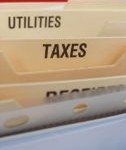 Whether you’re assessing your personal finances or you run a business, it’s common to go through phases when your books look healthier, and you’ve got more money coming in. As a business owner, it’s essential to ensure that you’ve got enough money coming in to prevent shortfalls. Cash flow issues can set you back and even put you out of business. If you’re eager to keep your company afloat, this guide will help you to design a strategy to conquer those cash flow problems and keep your business above water.
Whether you’re assessing your personal finances or you run a business, it’s common to go through phases when your books look healthier, and you’ve got more money coming in. As a business owner, it’s essential to ensure that you’ve got enough money coming in to prevent shortfalls. Cash flow issues can set you back and even put you out of business. If you’re eager to keep your company afloat, this guide will help you to design a strategy to conquer those cash flow problems and keep your business above water.
money management
 Unless you are one of those people lucky enough to have an amazing advisor who keep you accountable and on track, you are probably like most of us who spend a minimal amount of time actually thinking about and planning strategies for personal finance.
Unless you are one of those people lucky enough to have an amazing advisor who keep you accountable and on track, you are probably like most of us who spend a minimal amount of time actually thinking about and planning strategies for personal finance.
I heard the other day that we spend approximately 20 hours a year planning for our vacations and just one or two hours a year on taking care of our personal finances! Does that shock you? It definitely shocked me.
It doesn’t seem to matter how much money a person earns, if they don’t work on developing effective money management skills, they can end up bankrupt. I was reading an article on Yahoo! that talked about seven professional athletes who squandered away their money on all kinds of gadgets and doodads rather than investing it wisely.
Although it may seem like it would be easier to manage your money if you had a lot of it, it’s obvious from reading the article that having more money isn’t the solution. Instead, what it takes is a disciplined approach; creating a budget, paying yourself first, controlling your spending, and most importantly, not spending more than you earn. Although people who make a lot of money may not have to be as strict with their spending, they still need to follow the basic principles of effective money management; otherwise they could end up like Scottie Pippen and Lenny Dykstra.
 The majority of us are sticklers for finances at work, but often disregard our personal finance at home. For those who are not accountants, the process of keeping financial records and ensuring all financial items are squared away can be quite boring and often confusing. Instead of ignoring your personal finance until a problem arises, take the initiative today!
The majority of us are sticklers for finances at work, but often disregard our personal finance at home. For those who are not accountants, the process of keeping financial records and ensuring all financial items are squared away can be quite boring and often confusing. Instead of ignoring your personal finance until a problem arises, take the initiative today!
The most important aspect of your personal finance is undoubtedly your credit. Your credit score, often a mystical number of much confusion, is critical to your success in the financial realm. Without a respectable credit score, you will be unable to borrow money or obtain a home or vehicle loan. This number can literally hold you back from completing your goals and can severely limit your future.
The credit in your name has a direct bearing on the credit number. Thus people who do not use their credit cards properly and have huge bills running in their names lend a bad streak to their credit. A point to be noted is that it is not the amount you charge but it is the amount that is kept on credit that poses the threat of being harmful. It is important to keep a check on the monthly statement and you should endeavor to pay it in full each month.
In today’s society, identity theft is often a problem. If someone steals your identity, they can wreck your finances, ruin your credit, and tarnish your good name and reputation. In order to prevent identity theft, carefully monitor all your financial statements and safe guard your personal information.
The attitude of most people towards money is spending today and saving later, thus relegating saving for a later part of their life. But this habit catches them unawares in the later part of their life where they get jolted with the rude shocks of a fast approaching retirement date and a non-existent retirement fund. So do not wait for tomorrow, start saving today by putting some portions of your income in the retirement fund account.
One of the best ways to handle the finances is a budget. This is the best way to keep a tab on the finances and keeping the spending in control. When you create a budget you need to make two columns, one meant for the incomes and the second for expenditures. You need to mention all the items of expenditure in the expenses column such as rent or mortgage payment, car payment, insurance, utilities, and food. Whatever is left after deducting all this from the income is the monthly excess that of course can be used in different ways.
It’s a good idea to consult an accountant if you are not sure about setting your personal finance records straight. This person will help you correct any potential problems and ensure nothing goes wrong in the future.
The world of finance is fascinating. There’s no need to be scared of it. Just keep your finances straight and you will be able to build, or rebuild, your credit score.
About the Author
David Neehly is an independent Investment writer for “Investment Finances” at http://InvestmentFinances.com You’ll find all the latest Investment news there.
 Although you may have failed at managing your money wisely in the past, it’s never too late to start to develop good habits. Whenever you begin to feel it’s a losing battle or that there is just no way you can make ends meet let alone save for your retirement, think of WD-40.
Although you may have failed at managing your money wisely in the past, it’s never too late to start to develop good habits. Whenever you begin to feel it’s a losing battle or that there is just no way you can make ends meet let alone save for your retirement, think of WD-40.
For those of you who have never heard of it, WD-40 is a spray designed to repel water and prevent corrosion. It’s creator, Norm Larsen, invented WD-40 in 1953 after 40 attempts! That means he failed 39 times before finally getting it right! He was persistent. If he had given up, the world would never have been able to benefit from such a product. In the same way, you cannot afford to give up on developing good money management skills. Giving up is not the answer.
There are many ways you can improve your money habits. You can meet with a financial planner at your local financial institution and they can crunch some numbers and help you to create feasible goals for yourself. You can create a budget and stick to it, and you can also read books and Internet articles that will give you ideas on how to save money and invest it wisely.
Although it will take discipline now and mean that you will be making some sacrifices in the present, you will reap the benefits in the future. The sooner you start getting your finances in order, the better off you will be.
